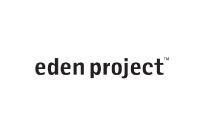In today’s digitally-dominated world, the significance of web development and design extends beyond aesthetics and functionality. As the digital realm burgeons, so does its environmental impact. Sustainable web development and design emerge as crucial practices to mitigate these effects, heralding a new era of environmentally conscious digital solutions. This article explores the multifaceted approach to eco-friendly web design, underscoring the importance of sustainable practices in the digital landscape.
The Imperative of Sustainable Web Development
The digital world’s expansion brings with it an increase in energy consumption and carbon emissions. Data centres powering the web demand massive energy resources, while the production of devices for web access contributes significantly to environmental degradation. Embracing sustainable web development practices is not just a technological choice, but a moral and environmental one, vital for preserving our planet’s health.
Advanced Coding for Sustainability
Efficient coding is the linchpin of sustainable web development. Writing clean, optimised code reduces loading times and minimises resource usage, significantly lessening a website’s carbon footprint. Practices such as code splitting enhance load times and decrease redundancy, making websites not only perform better but also more eco-friendly.
Server Optimisation for Energy Efficiency
The heart of web hosting, servers, can be optimised for better energy efficiency. Techniques like server virtualisation maximise resource utilisation and improve energy efficiency. Additionally, employing energy-efficient hardware and cooling solutions can significantly diminish the environmental impact of web hosting.
Responsive Design and Accessibility
Responsive design plays a dual role in enhancing user experience and reducing energy consumption on mobile devices. A mobile-friendly, responsive website eliminates the need for separate versions for different devices, thereby conserving resources. Ensuring accessibility in web design makes the web more inclusive, catering to people of all abilities, including those with disabilities.
The Minimalist Design Approach
Minimalism in web design advocates for simplicity and the intentional removal of superfluous elements. This approach contributes to sustainability by reducing data transfer and the environmental impact of websites. A minimalist design enhances user engagement and fosters a sustainable, efficient, and user-centred digital experience.
Implementing Sustainable Analytics Tools
Eco-friendly analytics tools play a pivotal role in sustainable web development. These tools are designed to conserve energy and resources in data processing, striking a balance between insightful user data collection and minimising environmental impact.
Educating Users on Sustainable Web Practices
Educating users about their online behaviours’ environmental impacts is crucial. Promoting energy-efficient browsing habits and supporting eco-friendly hosted websites can significantly contribute to a greener digital ecosystem. User awareness is key in fostering a responsible and sustainable online community.
Emerging Trends in Sustainable Web Design
Emerging trends such as dark mode, voice user interfaces, and micro-interactions are shaping the future of sustainable web design. These trends optimise energy consumption and enhance user engagement, contributing to the sustainability of web design practices.
Green Hosting Solutions
A crucial aspect of sustainable web development is the choice of web hosting. Green hosting providers use renewable energy sources or carbon offsetting to power their data centres, significantly reducing the environmental impact. They employ various strategies like using more energy-efficient servers, cooling data centres naturally, and investing in renewable energy projects. By choosing a green host, websites can drastically reduce their digital carbon footprint.
The Role of Content Management Systems (CMS) in Sustainability
Content Management Systems like WordPress, Joomla, and Drupal can play a significant role in sustainable web design. Many CMS platforms are focusing on sustainability by optimising their core code for better performance and encouraging the use of eco-friendly plugins and themes. These systems allow for the creation of efficient, fast-loading websites that consume less energy.
The Importance of Lifecycle Thinking in Web Development
Lifecycle thinking involves considering the environmental impact of a website from its inception to its eventual decommissioning. This includes selecting sustainable technologies and practices at every stage of the development process, such as energy-efficient coding, eco-friendly hosting, and sustainable content strategies. By adopting a lifecycle approach, developers can ensure that every aspect of the website contributes to its overall sustainability.
Data Optimisation and Reduction
Reducing the amount of data a website needs to function can significantly impact its energy consumption. Techniques like data minimisation, optimising database queries, and efficient use of caching can help reduce the data footprint of a website. Less data transfer means lower energy usage both on the server side and for the end-user accessing the site.
User Experience Design for Sustainability
User Experience (UX) design can influence the sustainability of a website. Designing for efficiency not only enhances the user experience but also reduces the environmental impact. UX designers can contribute by creating intuitive interfaces that encourage efficient navigation, minimising the time and energy users spend finding information on a site.
Leveraging Artificial Intelligence for Eco-Friendly Web Development
Artificial Intelligence (AI) offers innovative ways to enhance sustainability in web development. AI can be used for optimising website layouts for energy efficiency, automating the process of image and video optimisation, and even predicting user behaviour to streamline the user journey on a site.
Sustainable Digital Marketing Strategies
Digital marketing plays a pivotal role in driving traffic to websites. Sustainable digital marketing involves optimising campaigns for efficiency, targeting the right audience to reduce unnecessary digital footprints, and leveraging eco-friendly platforms and tools. This includes the use of energy-efficient digital advertising platforms and the creation of marketing content that aligns with sustainability goals.
The Future of Sustainable Web Development
The future of web development is intrinsically linked to sustainability. Emerging technologies like edge computing, which brings data processing closer to the end-user, are set to reduce the energy consumption of cloud computing. Advancements in programming languages and frameworks are continually focusing on performance and efficiency, contributing to a greener web.
Case Studies and Success Stories
Real-world examples of successful sustainable web development projects can provide valuable insights. Case studies of websites that have effectively implemented green practices, from coding to hosting and user experience, can serve as an inspiration and a learning resource for developers and designers aiming to create more sustainable websites.
A Shared Journey Towards a Greener Digital Future
Sustainable web development and design transcend fleeting trends, representing essential practices for crafting a greener digital future. This journey is an ongoing process that hinges on the collective efforts of web developers, designers, hosting providers, and users. By integrating eco-friendly strategies and embracing innovative technologies, we have the power to significantly reduce the environmental impact of our online activities, steering our digital world towards a more sustainable, responsible future. Sustainable web development is not merely a contemporary trend; it is a necessity in our rapidly evolving digital landscape.
As we continue to advance in this shared journey, we invite you to join us in making a positive impact. If you are interested in assessing the sustainability of your website, contact us for a complimentary audit and a Web Carbon Check. Together, let’s explore how we can enhance your digital presence while contributing to a more eco-conscious online world.









